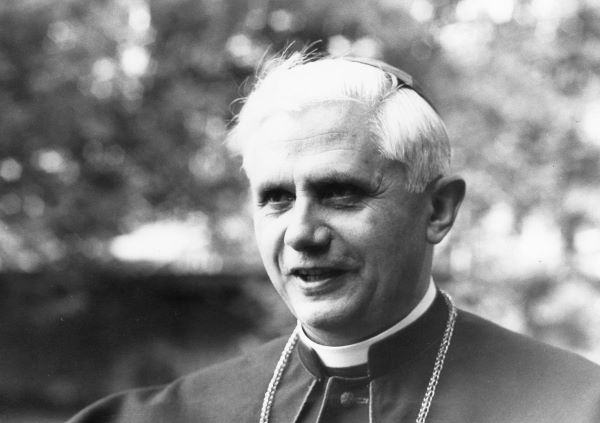A former doctoral student of Benedict XVI has said that the German pontiff will be remembered above all as a theologian.
Fr Vincent Twomey, Emeritus Professor of Moral Theology at St Patrick’s College, Maynooth, is one of the 44 members of the Ratzinger Circle of Alumni.
He said he believed his former professor, who has died aged 95, will be “regarded as one the great Popes in the history of the Church”.
“Apart from being a brilliant lecturer and inspirational homilist, he remained all his life basically a fine scholar and yet a simple priest with a truly pastoral heart.”
Fr Twomey studied under the theologian Karl Rahner in the 1970s before he transferred to the University of Regensburg to do his doctoral studies under the supervision of the then Joseph Ratzinger.
Of Pope Benedict’s legacy, he told The Tablet: “It will come as no surprise to me, if in the future, he will be declared a Doctor of the Church.”
“As his doctoral student from 1971 to 1978, it was my privilege to come to know one of the greatest theologians of our time. Like most of his former students, we kept in touch down through the years.”
The Divine Word Missionary said the depth of Benedict’s theology “is only now being discovered by the younger generations of scholars. His collected writings cover 16 volumes, averaging some 1,000 pages each, on every conceivable topic in theology, philosophy, science, literature, and politics.”
“Future generations of all walks of life will find inspiration in his pastoral writings as Pope, especially his encyclicals on love and hope, which rank as among the most outstanding ever to come from the pen of a Pope.”
One of Pope Benedict’s more controversial moves was his apostolic letter Summorum Pontificum of July 2007, which granted greater freedom for priests to use the Tridentine liturgy in its 1962 form.
According to Fr Twomey, Benedict’s aim in allowing a more frequent use of the traditional Latin Mass was “to promote a more reverent and sacral approach to celebrating the sacraments in the vernacular”.
Another aspect of his legacy he highlighted was Benedict’s creation of the Anglican Ordinariate to enable Anglicans in union with Rome to preserve the richness of their own Anglican liturgical tradition.
“Relations with the Orthodox Churches, always warm, were deepened.”
“In 2011, he addressed representatives of the World Religions in Assisi paying special attention to the contribution of agnostics in keeping us open-minded.
“A quotation taken out of context in his famous lecture [to the University of Regensburg], though it caused outrage initially, led to a new dialogue with some 138 representatives of moderate Islam.”
“His historic addresses to politicians in New York [at the UN], London, Paris, and Berlin, are regarded as masterpieces of political science.
“In Regensburg, he stressed the intrinsic relationship between faith and reason – the leitmotif of his life and writings – if humanity is to be fully human.”
In March 2010, Benedict wrote his pastoral letter to the Catholics of Ireland in which he criticised the country’s bishops over their handling of clerical child sexual abuse.
The letter was sent in the wake of the Ryan Report, which investigated Ireland’s religious-run industrial schools, and the Murphy Report on the mishandling of clerical child sexual abuse in the Archdiocese of Dublin.
According to Fr Twomey, “Pope Benedict XVI was deeply concerned about the state of the Irish Church, and not just with regard to the abuse scandals. With regard to the latter, he did his utmost to address the causes of the abuse and to indicate a way forward.”
In a personal tribute, Fr Twomey said Benedict “was, and remained all through his life, a simple, humble man of God, who valued human friendship”.
“Dialogue was not only a dimension of his notion of God and of God's relationship with humanity, it was also central to his own engagement with others, including those who disagreed with him. He was quintessentially a listener.”
“For most of his public life, he was under attack for being a thorn in the flesh of many contemporaries. He bore it all with heroic patience and equanimity.
“In a word, he was magnanimous. He was unobtrusively saintly, if that is not a tautology. A smile was always on his lips.”
“Above all, he loved the Church, which is to say humanity in the process of being redeemed, and spent his life unstintingly in her service as scholar-priest, bishop, cardinal prefect and Pope.”



 Loading ...
Loading ...